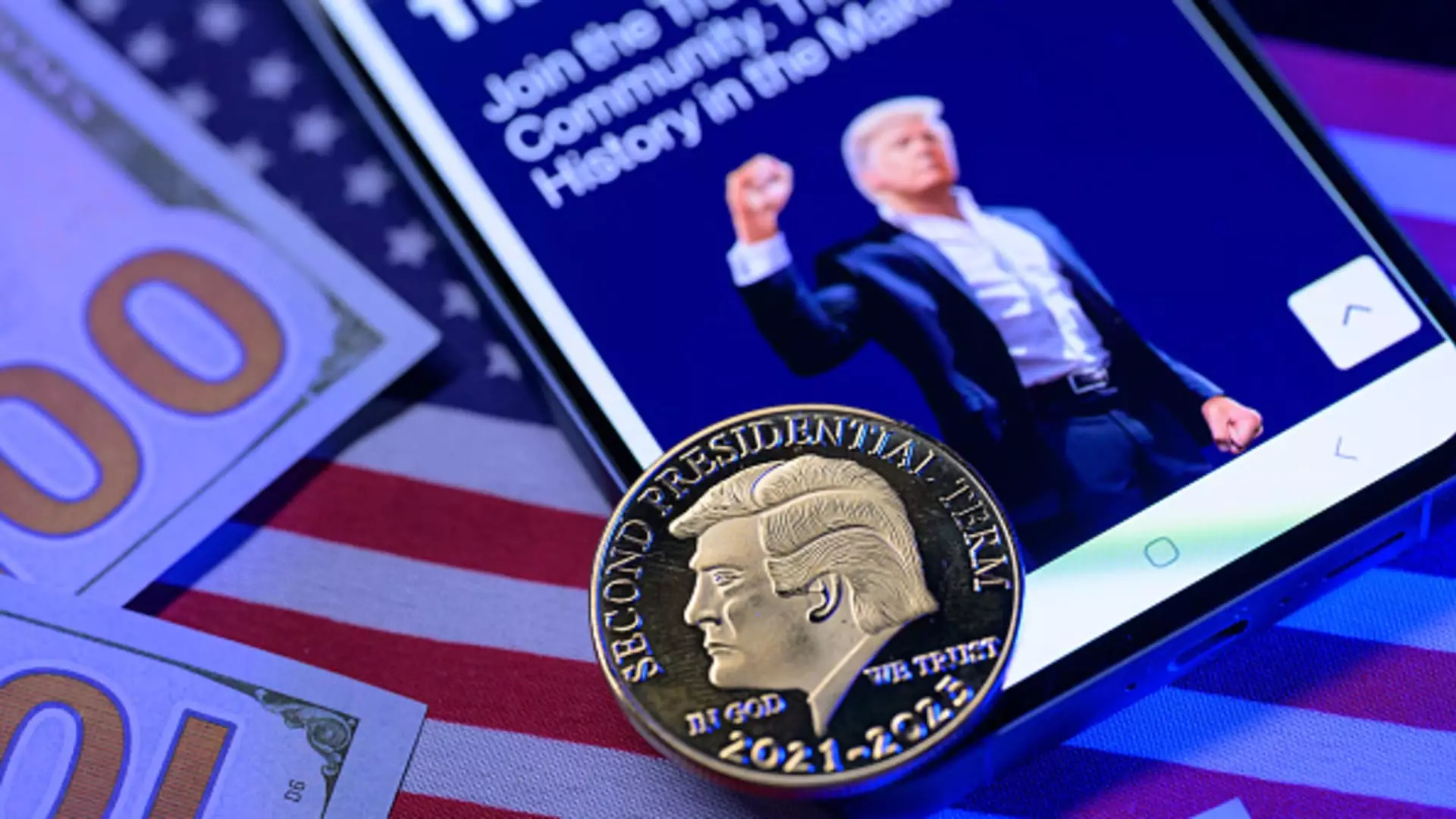The ever-evolving landscape of cryptocurrency has recently intersected with political branding in a remarkable fashion. With the impending private dinner hosted by former President Donald Trump for the largest holders of the $TRUMP meme coin, the discussion now centers around the ethical implications of such a move. Scheduled for May 22 at Trump’s golf club in Virginia, this event has become a focal point for intrigue, especially considering the anonymity surrounding the wallets of crypto investors—leading to a flurry of questions regarding who exactly is shaping the future of this digital asset.
The blend of cryptocurrency with political connections raises eyebrows not only among crypto enthusiasts but also among policy makers and commentators. The inherent nature of crypto, marked by pseudonymity, makes it particularly susceptible to the influence of foreign interests and corporate stakeholders. As it stands, the top $TRUMP token holders are predominantly linked to international exchanges such as Binance, with a significant portion residing outside the U.S. This raises the issue of whether foreign entities are seeking to leverage their financial investments as political capital, effectively circumventing traditional modes of influence.
The Players Behind the Portfolio
At the forefront of this enthralling saga is Justin Sun, a prominent figure in the cryptocurrency sphere known for his audacious investment moves. The Tron blockchain founder, who has reportedly amassed a staggering $75 million in $TRUMP tokens—benefiting from a project where 75% of proceeds fund Trump-related initiatives—highlights the intersection of investment, tech innovation, and political influence. Despite significant allegations regarding his business dealings, Sun’s involvement raises important questions: Is the participation of wealthy, foreign crypto entrepreneurs a burgeoning threat to American political integrity? The speculative nature of Sun’s wallet transactions lends itself to scrutiny, particularly given that major crypto players tend to play a game of high-stakes gambling.
Furthermore, investment groups such as MemeCore have made headlines by making substantial purchases in a bid to secure their place at the presidential dinner. With an investment of $18 million, the Singapore-based network appears determined to gain political favor, further complicating the narrative surrounding transparent political funding. However, what remains ambiguous is the potential for mass influence wielded through large-scale financial bets on political events, increasing the stakes for both investors and politicians alike.
The Market Volatility Factor
The sheer volatility of the $TRUMP token offers another layer of complexity to the analysis. An examination of the financial metrics reveals a stark reality: while 560,376 wallets have enjoyed a collective $5.2 billion in profits from the token, an even larger group of 592,962 wallets incurred losses nearing $3.9 billion. This disproportionate wealth distribution within the $TRUMP ecosystem offers a grim reflection of the consequences of speculative investments, especially as they intertwine with political aspirations.
The cryptocurrency market’s erratic nature has not gone unnoticed by established financial analysts and tech consultants. Chainalysis and Elliptic, leading blockchain research firms, initially took steps to analyze the $TRUMP token’s trading patterns. However, they soon diverted their focus back to their existing clientele, revealing how quickly the mysterious dynamics of crypto can overshadow the promise of political transparency.
Regulatory Oversight and Ethical Concerns
Concerns about regulatory oversight are further amplified by the fact that international companies, like Freight Technologies, are investing vast sums into $TRUMP tokens, seemingly seeking to use their financial leverage to influence policy decisions—specifically regarding U.S.-Mexico trade relations. CEO Javier Selgas’s assertion that the $2 million investment in the token is a strategic maneuver to promote equitable trade policies encapsulates the troubling notion whereby financial stakes begin to dictate governmental decision-making processes.
Senator Richard Blumenthal has voiced alarm regarding the potential conflict of interest, warning that Trump’s expanding crypto holdings could act as a conduit for foreign entities to garner undue influence within the U.S. political system. This brings into question the ethical considerations surrounding public figures engaging in cryptocurrency ventures, especially those boasting dubious links to foreign stakeholders.
The combination of former President Trump’s celebrity status, the allure of crypto, and the potential for intricate foreign investment schemes creates a cocktail of speculation that lawmakers can no longer ignore. As both technology and politics converge in unprecedented ways, a closer examination of these interactions is not only warranted but essential to maintaining the integrity of the political landscape.

